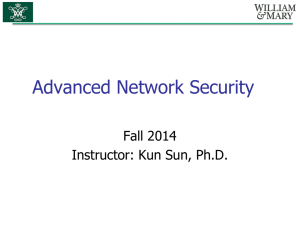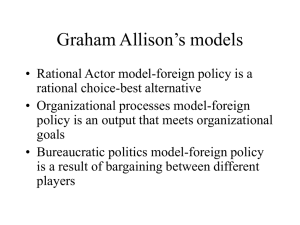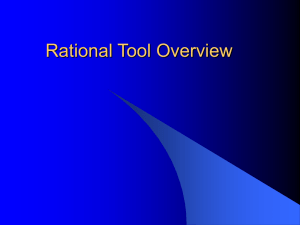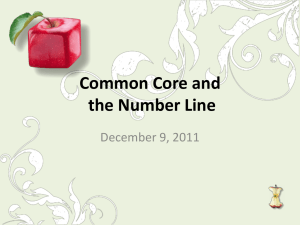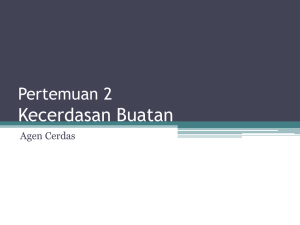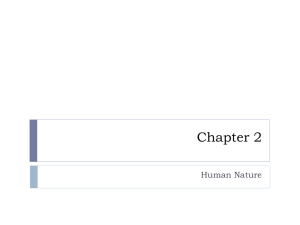The Testing Process Using Rational Purify.
advertisement
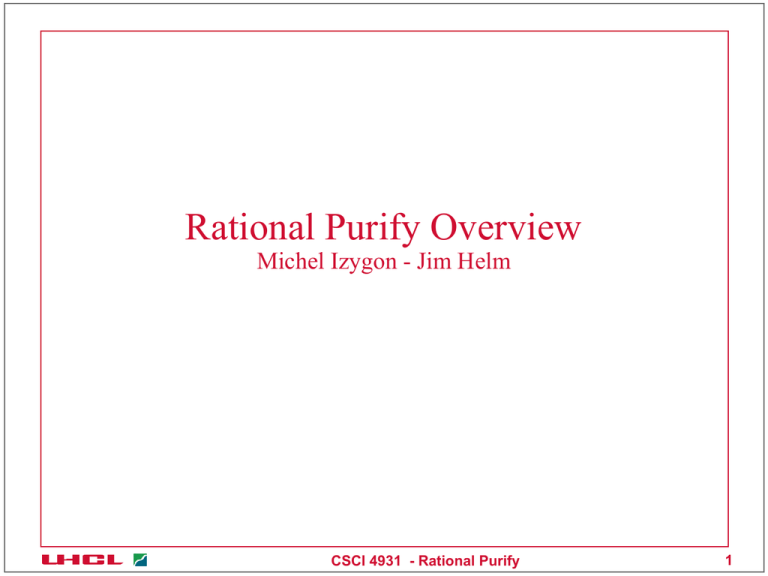
Rational Purify Overview Michel Izygon - Jim Helm CSCI 4931 - Rational Purify 1 Purify • • • • Tool supporting Testing/Reliability Diagnostics Locate hard to find run-time errors Start using as soon as code is written Languages: C, C++, CSCI 4931 - Rational Purify 2 Purify Key Features • Detect following types of errors: array bounds errrors accesses through dangling pointer uninitialized memory read memory allocation errors memory leaks • Provide filtering and detail level customization • GUI and command line interface • Integrated with VC++, ClearQuest, TestFactory CSCI 4931 - Rational Purify 3 Runtime Debugger Technology • Two main techniques: Object Code Insertion: – Instrumentation of the code happens on the executable file – Involves the instrumentation of each object file and library by adding special instructions to every store and read instructions – Allow to debug even if you don’t have the source code Source Code Insertion – Instrumentation of the code happens on the source file – Involves parsing, analyzing and conveting the original code into a new equivalent source code. Then Compile the new code. – Generally more accurate and has access to more information about the program pointers and meory blocks. Can detect errors at compile time also. • Purify uses Object Code Insertion CSCI 4931 - Rational Purify 4 Array bounds errors • Program writes memory past the bounds of an allocated block example: • Memory corrupted may be used much later in the program • Symptom far away from the cause • Program may behave in an unpredictable way, dependent upon the values accessed in the memory block corrupted. • Purify reports Array Bounds Read and Array Bounds Write CSCI 4931 - Rational Purify 5 Accesses through dangling pointer • Access to a freed dynamically allocated block of memory • Outcome of program is unpredictable: if memory block not reallocated, expected value might still be there, and program seems OK if memory block reallocated program might fail, dependent on timing issues, memory allocation pattern,… • Access can be a Read or a Write • Purify reports Free Memory Read and Free Memory Write CSCI 4931 - Rational Purify 6 Uninitialized memory read • Access to an allocated block of memory which has not yet been initialized. • Outcome of program is unpredictable, depending on the context. • If memory contains value remaining from previous memory use, program will behave erratically • Purify reports Uninitialized Memory Read CSCI 4931 - Rational Purify 7 Memory allocation errors • Memory allocated with new but freed with free may cause corruption of heap structures. • If these structures are accessed, program can fail. • Attempt to free a local variable on the stack might succeed and corrupt local variables or function return. • Purify reports Freeing Mismatched Memory and Freeing Invalid Memory CSCI 4931 - Rational Purify 8 Memory leaks • Memory allocated but never freed, and for which no pointers exist. • Memory blocks cannot be used nor freed, and occupy address space. • Performance of the program degrades and eventually it fails from lack of memory • Purify reports Memory Leaks CSCI 4931 - Rational Purify 9 Other Features • • • • • Filtering Messages Comparing program runs Just in time debugging API functions Submit Change Request to ClearQuest directly from Purify CSCI 4931 - Rational Purify 10 Caution • Purify can detect memory corruption errors, but only in dynamic memory. • Purify does not detect corruption on the stack or in static memory at all, because the fence technique only works for dynamic memory. CSCI 4931 - Rational Purify 11

